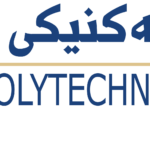- Mohammed Qader Mustafa
- [email protected]
- 0750 902 3737
- Immunophenotyping and IL-18 Promotor Gene Polymorphism in Acute Lymphoblastic Leukemia in Erbil - Print
-
Acute Lymphoblastic Leukemia (ALL) is a malignant neoplasm of the hematopoietic system that primarily affects children. The pathogenesis of ALL is complex and multifactorial, involving various genetic, epigenetic, and immunological factors. This study aimed to investigate ALL patients' immunophenotyping and DNA polymorphism of the IL-18 gene (rs1946518) and explore their potential clinical implications.
In this study, a total of 51 patients with ALL were enrolled. The average age of diagnosis was 8.7 years. Out of these 51 patients, 32 were selected for molecular studies, while 10 children were included as control subjects to analyze further the molecular data, 10 random samples out of the 32 PCR products were chosen for Sanger sequencing, and their clinical characteristics, including age, sex, and subtype of ALL, were recorded. A complete blood count (CBC) was performed to assess the hematological parameters of the patients. The expression of several CD markers, including cTDT antigens, human leukocyte antigen-DR(HLA-DR), cytoplasmic myeloperoxidase, CD117, cCD79a, CD56, CD34, CD33, CD22, CD19,CD11b, CD10, CD7,cCD3, CD2, was analyzed using flow cytometry. Genotyping of the samples for IL-18 gene polymorphisms was conducted through Tetraprimer Amplification Refractory Mutation System Polymerase chain reaction(T- ARMS PCR). Also, the promoter region of the IL-18 gene was amplified through Polymerase Chain Reaction (PCR), and any mutations or Single Nucleotide Polymorphisms (SNPs) was analyzed via Sanger sequencing. Additionally, genotyping of the samples for IL-18 gene polymorphisms was conducted through Tetraprimer Amplification Refractory Mutation System polymerase chain reaction (T-ARMS PCR).
VI
The results showed that most patients (75.8%) had pre- or common B-ALL, while 12.1% had T-lymphoblastic leukemia (T-ALL) , 9.1% patients had Pro- B ALL and 3% patients had Burkitt's lymphoma. Significant differences were observed in CD marker expression between patients with different CD expressions, with CD19+, CD79a+, and CD10 associated with a higher blast percentage. There seemed to be variations in CD marker manifestation among the age groups below 15 and above 15 years. CD79a, CD22, CD19, CD10, TdT, HLA-DR, and CD123 were commonly expressed positive CD markers, whereas CD45 had moderate to low expression and was not associated with these markers. In terms of IL-18 gene polymorphisms, 100% of the control population had homozygous wild-type alleles, while six patients (18.75%) had heterozygous (CA) alleles, and four patients (12.5%) had homozygous (AA) alleles. The remaining 68.75% had 2 polymorphic alleles on the promoter’s region. The current study identified 23 mutations through Sanger sequencing for 10 random samples in the promoter region of the IL-18 gene, including SNPs, insertion, deletion, and duplication. There were 11 types of variation, with 14 being sense and 9 being non-sense mutations. The study also discovered 3 previously unknown (Novel) SNPs, which increases our knowledge of genetic variation in the IL-18 gene.
In conclusion, this study highlights the importance of immunophenotyping and DNA polymorphism analysis in understanding the pathogenesis of ALL and its potential impact on patient management. The findings suggest that specific CD markers and IL-18 gene polymorphisms may be associated with a higher risk of developing ALL. Further research is needed to investigate these associations in more detail. This study provides valuable insights into the molecular and immunological mechanisms underlying ALL and lays the groundwork for future studies.
- Erbil Technical Health College
- Medical Analysis
- Hematolog


